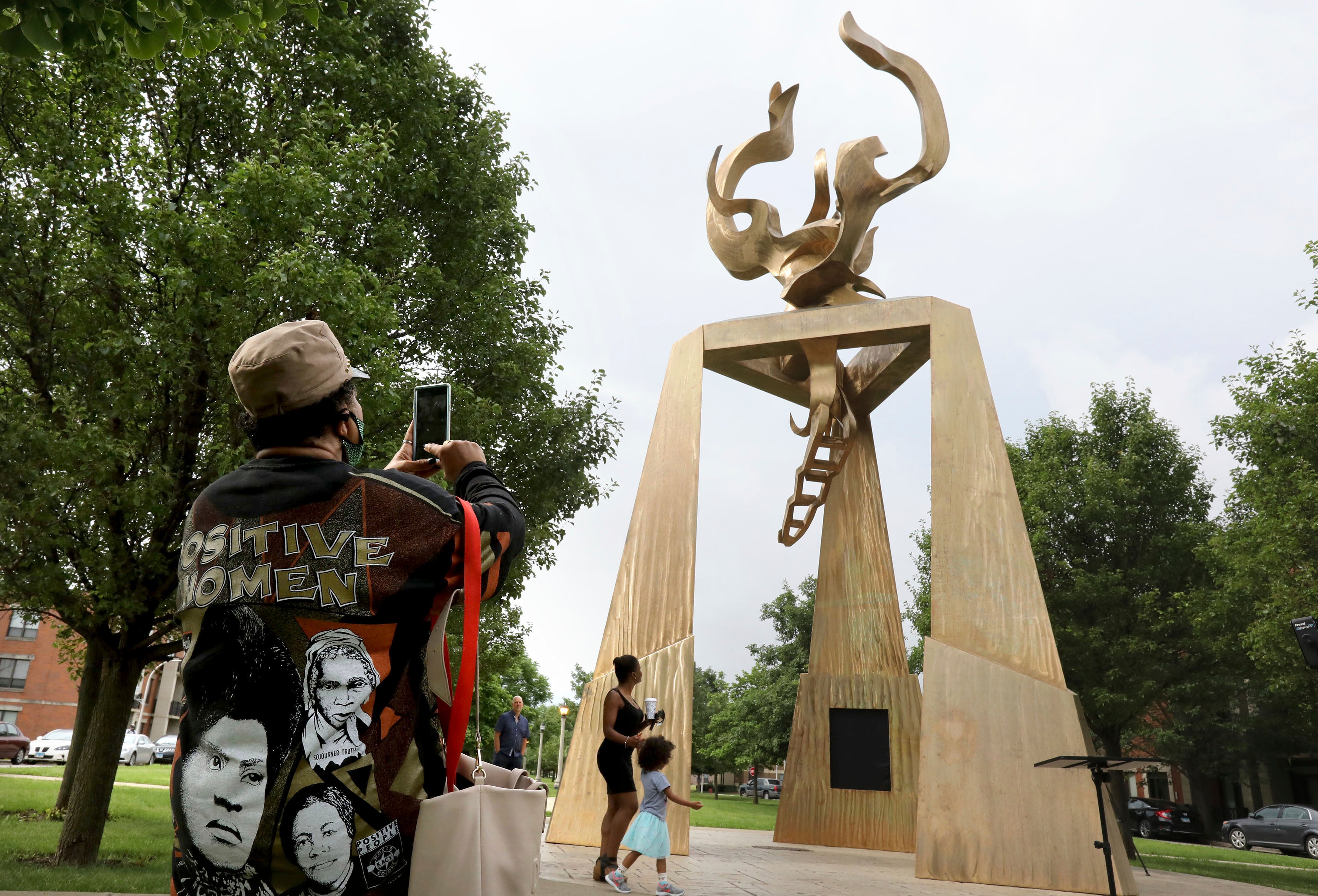Monument unveiled to activist, journalist Ida B. Wells
A monument to journalist and civil rights activist Ida B

Your support helps us to tell the story
From reproductive rights to climate change to Big Tech, The Independent is on the ground when the story is developing. Whether it's investigating the financials of Elon Musk's pro-Trump PAC or producing our latest documentary, 'The A Word', which shines a light on the American women fighting for reproductive rights, we know how important it is to parse out the facts from the messaging.
At such a critical moment in US history, we need reporters on the ground. Your donation allows us to keep sending journalists to speak to both sides of the story.
The Independent is trusted by Americans across the entire political spectrum. And unlike many other quality news outlets, we choose not to lock Americans out of our reporting and analysis with paywalls. We believe quality journalism should be available to everyone, paid for by those who can afford it.
Your support makes all the difference.A monument to journalist and civil rights activist Ida B. Wells-Barnett was unveiled Wednesday in Chicago
Officially called The Light of Truth Ida B. Wells National Monument, the commemoration created by sculptor Richard Hunt was dedicated in the South Side neighborhood where Wells lived out her life.
The monument has three bronze columns that support intertwined bronze sheets twisted into coils and spirals. One observer had trouble describing the abstraction at the top of the monument, asking if it was hat or a crown of thorns. She was more certain about the columns.
“It is interesting,” spectator Roberta Trotter told the Chicago Tribune ”I just want to know what the artist thinks before I say more. But I do see a strong base. That, I understand — Ida was a strong woman.”
Granddaughter Michelle Duster said traditional busts and statues of Wells were considered, but she and others pushing for the monument preferred something interpretative, which she said projects Wells better than the literal.
The monument to Wells was financed by contributions made during a fund-raising campaign over several years led by Duster. It sits on the site of the Ida B. Wells Homes, a housing project constructed in the 1930s, torn down in 2011 and replaced with market rate and subsidized housing.
“Hopefully it becomes a point of pride to Bronzeville, the kind of thing people want to serve as a backdrop to their lives here,” Duster said. "That’s what I want — a gathering spot.”
Congress Parkway, a major street in Chicago’s business district, was renamed for Wells in 2019.
Wells, who was born a slave in 1862 in Mississippi, was a 30-year-old newspaper editor in Memphis, Tennessee, when she began her campaign against lynching. Wells' crusade was prompted by the 1892 lynching of a man whose first child was her godchild. She traveled the South over several months interviewing witnesses and reading reports of similar events, which she published in the newspaper she co-owned and edited, The Memphis Free Speech and Headlight.
In 2020, Wells was awarded a posthumous Pulitzer Prize for her reporting on the lynching of African Americans
Although she was threatened frequently because of her work, she helped to found several civil rights organizations including the National Association for the Advancement of Colored People and the National Association of Colored Women.
Wells died of kidney disease on March 25, 1931, at 68.